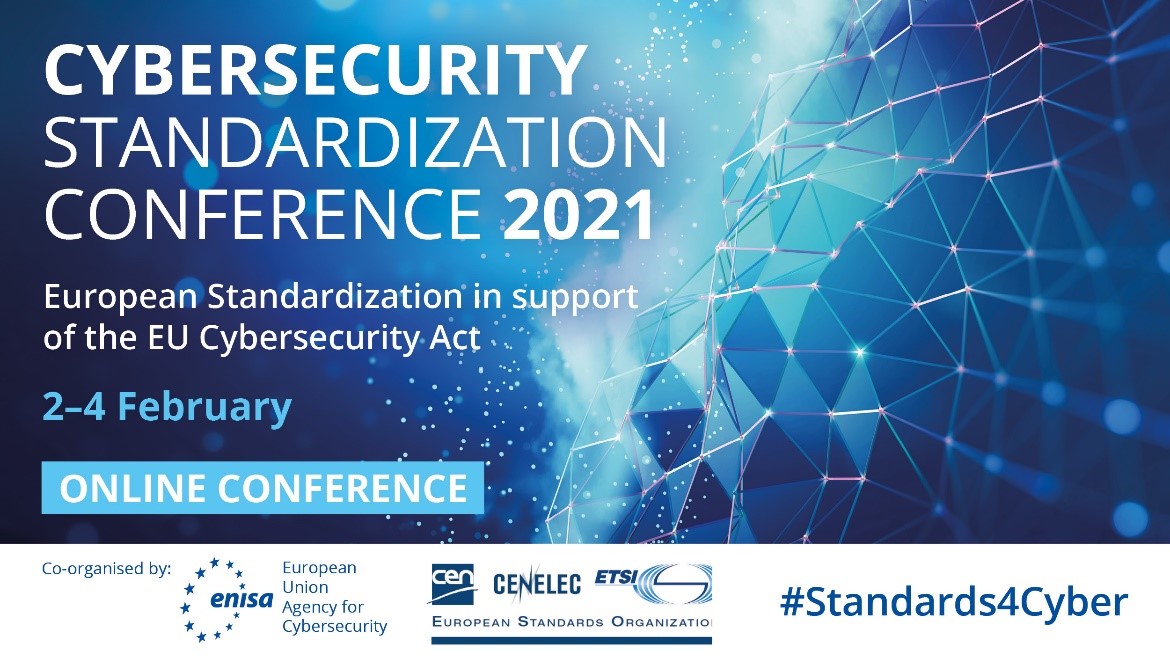The new versions of two of the most important European standards for lifts (EN 81-20:2020 and EN 81-50:2020) have just been published in the Official Journal of the EU, ensuring their harmonization under the Lifts Directive. This can be the opportunity to explore more in detail the surprising and very important role of standards for lifts and elevators in the EU and on the global market.
European Standards for lifts and escalators: a Single Market Success story : In 1962, the European Committee for Standardization (CEN) established CEN/TC 10 on ‘Lifts, escalators and moving walks’ with the aim of agreeing on safety rules for the construction and installation of lifts, escalators, and passenger conveyors in the then European Community. The work of European standardization in this field has been particularly relevant in making the Single Market a reality through the adoption of Harmonised Standards. CEN successfully collaborates with the European institutions by creating the standards that implement the requirements introduced by the 'Lifts Directive 2014/33/EU' and 'Machinery Directive 2006/42/EC'. The Lifts Directive, whose latest version is applicable from 20 April 2016, harmonises the rules governing the design, manufacture, and installation of lifts. Its aim is to permit the free circulation of lifts within the EU internal market, ensuring a high level of safety for lift users as well as maintenance and inspection technicians. Similarly, the Machinery Directive harmonises the rules for escalators and other lifting appliances.
CEN and CENELEC launched a new Joint TC on Artificial Intelligence
Even though Artificial Intelligence (AI) has existed since the 1950s, the rapid developments in the past years have turned it into one of the most promising sectors within ICT. There has been an enormous growth in investments and use of AI systems in many sectors such as automobile, health and aeronautics, creating new challenges for both industry and society.
To ensure the development of trustworthy AI systems that respect fundamental values and human rights recognised in Europe, standardization is needed. For this reason, CEN and CENELEC have established the new CEN-CENELEC Joint Technical Committee 21 ‘Artificial Intelligence’, based on the recommendations presented in the CEN-CENELEC response to the EC White Paper on AI and the German Standardization Roadmap for Artificial Intelligence. The Joint Technical Committee, whose Secretariat is held by DS, the Danish Standardization Body, will be responsible for the development and adoption of standards for AI and related data, as well as provide guidance to other Technical Committees concerned with AI.
CEN - CLC/JTC 21 will proceed with the identification and adoption of international standards already available or under development from other organizations like ISO/IEC JTC 1 and its subcommittees, such as SC 42 Artificial Intelligence. Furthermore, CEN-CLC/JTC 21 will focus on producing standardization deliverables that address European market and societal needs, as well as underpinning EU legislation, policies, principles, and values.
The European Commission presents a vision, targets and avenues for a successful digital transformation of Europe by 2030. This is also critical to achieve the transition towards a climate neutral, circular and resilient economy. The EU's ambition is to be digitally sovereign in an open and interconnected world, and to pursue digital policies that empower people and businesses to seize a human centred, sustainable and more prosperous digital future. This includes addressing vulnerabilities and dependencies as well as accelerating investment.
To make the next years Europe's ‘Digital Decade'; responds to the European Council's call for a ‘Digital Compass'; and builds on the Commission's digital strategy of February 2020. The Communication proposes to agree on a set of digital principles, to rapidly launch important multi-country projects, and to prepare a legislative proposal setting out a robust governance framework, to monitor progress – the Digital Compass.
Europe's Digital Compass: The Commission proposes a Digital Compass to translate the EU?s digital ambitions for 2030 into concrete terms. They evolve around four cardinal points:
- Digitally skilled citizens and highly skilled digital professionals: By 2030, at least 80% of all adults should have basic digital skills, and there should be 20 million employed ICT.
- Secure, performant and sustainable digital infrastructures: By 2030, all EU households should have gigabit connectivity and all populated areas should be covered by 5G.
- Digital transformation of businesses: By 2030, three out of four companies should use cloud computing services, big data, and Artificial Intelligence.
- Digitalization of public services: By 2030, all key public services should be available online; all citizens will have access to their e-medical records; and 80% citizens should use an eID solution.
European Commission, standards are crucial for European Climate Adaptation policy
On 24 February 2021 the European Commission adopted the new EU Strategy on Adaptation to Climate Change, which is setting the pathway to prepare for the unavoidable impacts of climate change in Europe. The Commission clearly states in the strategy that they intend to “increase cooperation with standardization organisations to make sure that existing standards are climate-proof and to develop new ones for climate adaptation solutions”.
CEN and CENELEC support the European effort to mitigate climate change, an also the preparation for its unavoidable consequences. Since the publication of the first EU adaptation strategy in 2013, CEN and CENELEC have been working closely with the European Commission on climate proofing the key infrastructures by revising the relevant priority standards. The first set of standards that include adaptation solutions from various sectors are being now finalised.
In addition to the extension of the activities of the CEN-CENELEC Adaptation to Climate Change Coordination Group, at the end of 2020 the new CEN/TC 467 ‘Climate Change’ was also established with the objective to develop European standards in support of the EU policy objectives. This clearly indicates the importance of climate change in the European standardization. An overview of CEN and CENELEC’s activities to support the efforts to mitigate climate change can be found on the policy paper “Standards in support of the European Green Deal Commitments”
ETSI Launches New Group on IPV6 Enhanced Innovation
In the 5G and cloud era, IPv6 will grow rapidly. Strengthening new generation IP network technologies based on IPv6 and its innovative technologies has become the common direction of the IP industry. To tackle the increasing Industry needs for IPv6 adoption in multiple Use Cases and Scenarios, ETSI has recently launched ISG IPv6 Enhanced innovation (IPE). IPE aims to drive full connectivity of IPv6 on everything and facilitate the business success of this technology. IPE members include 43 organizations to date, comprising carriers, vendors, and academia, working together to improve the industry ecosystem and accelerate innovation.
The group will first analyse the current landscape of existing IPv6 standards deployed on prime technologies such as 5G, IoT and Cloud Computing to identify gaps and thus accelerate IPv6-based innovations. Two other reports will cover data centre and Cloud use cases on one hand and 5G Transport use cases on the other hand. The last pieces of work will define Industrial IoT/enterprise requirements and IPv6 only transition requirements across new and evolving technology domains and areas.
Our world is changing faster than ever, driven by environmental and geopolitical changes and technological innovation. Such structural trends raise a variety of challenges across different regions and industries, and make for an unpredictable, at times even turbulent, market environment. However, these rapid changes also offer opportunities for growth and innovation. Through the new Strategy, the CEN and CENELEC community aims at “Building a safer, more sustainable and competitive Europe through European and International Standardization”. To achieve this, the organisations state as their mission: “through our stakeholders’ networks, we create consensus-based standards in order to generate trust, fulfil market requirements, enable market access and innovations for a better, safer and more sustainable Europe”.
The Strategy 2030 establishes a series of five goals that will guide CEN and CENELEC’s actions in the next decade:
- EU and EFTA recognize and use the strategic value of the European standardization system
- Our customers and stakeholders benefit from state-of-the-art digital solutions
- Increase the use and awareness of CEN and CENELEC deliverables
- The CEN and CENELEC system to be the preferred choice for standardization in Europe
- Strengthen our leadership and ambition at the international level
As a strategic framework for CEN, CENELEC and their respective members, the Strategy 2030 will provide a frame of reference to ensure complementarity, coherence and consistency across the strategic exercises and long-term objectives of all actors in the CEN and CENELEC community.
The EU’s Circular Economy Action Plan
The European Commission released its new Circular Economy Action Plan (CEAP) in support of the European Green Deal on 11 March 2020. It fits in a preeminent list of EU strategy documents with a strong impact on standardization, such as the new Biodiversity Strategy, the Farm to Fork Strategy, the Industrial Strategy, the Chemicals Strategy for Sustainability and the Sustainable Products Initiative.
Building on the work already undertaken in the transition towards a more circular European economy, the Action Plan sets out objectives in product design, production and consumption. This new Action Plan for the Circular Economy will have impacts on most – if not all – businesses in Europe. The need for constant, systematic monitoring of upcoming legislation is now higher than it has ever been for companies to best undertake this transition without affecting their profitability.
In this context, the Circular Economy Topic Group (CE-TG) of SABE was set up to provide a faster and more coordinated response to the horizontal and cross sectorial standardization needs related to the European Circular Economy-related initiatives. The SABE CE-TG focuses on identifying and discussing strategic standardization issues and needs related to Circular Economy within CEN and CENELEC and the coordination with other standard organizations. It supports SABE in advising the CEN and CENELEC Technical Boards on standardization priorities for instance in support of the implementation of the Circular Economy Action Plan.
The European Standards Organizations, CEN, CENELEC and ETSI, joined forces with ENISA, the European Union Agency for Cybersecurity, to organize its annual conference virtually this year. The event, which took place from 2 to 4 February, attracted over 2000 participants from the EU and from around the world. The conference addressed standardization in relation to the Radio Equipment Directive (RED) and certification under the provisions of the Cybersecurity Act (CSA). The ultimate objective of the exercise is to enable an effective implementation of the Cybersecurity Act. The objectives of the presentations and key topics addressed by the conference panels were the following:
- Cybersecurity requirements and standardization activities under the scope of the Radio Equipment Directive
- Standardization supporting the Cybersecurity Act
- Developments on standardization in the area of Consumer IoT
- Standardization of 5G
The slides presented during the conference are available on the website of the Cybersecurity Standardization Conference.
2021 is the European Year of Rail. On this occasion, CEN and CENELEC are proud to highlight the important role European standards play to ensure the well-functioning of a key sector for the future of Europe. Standardization on railways application is part of CEN and CENELEC’s wider work on transportation, a complex and large portfolio: it includes 1234 standards from CEN and CENELEC. These standards are mainly developed by two Technical Committees (TCs), CEN/TC 256 'Railway Applications' and CLC/TC 9X 'Electrical and electronic applications for railways'.
In particular, standards on rail cover a wide range of topics specifically related to railways applications (products, processes and services), such as, among others, safety, rolling stock capacity, system efficiency, as well as cybersecurity, digitalisation, and automatic couplings. This work on rail contributes massively to the development of safe, innovative and efficient railway systems infrastructure, rolling stock and systems, and supports the EU in its strategic ambitions.














